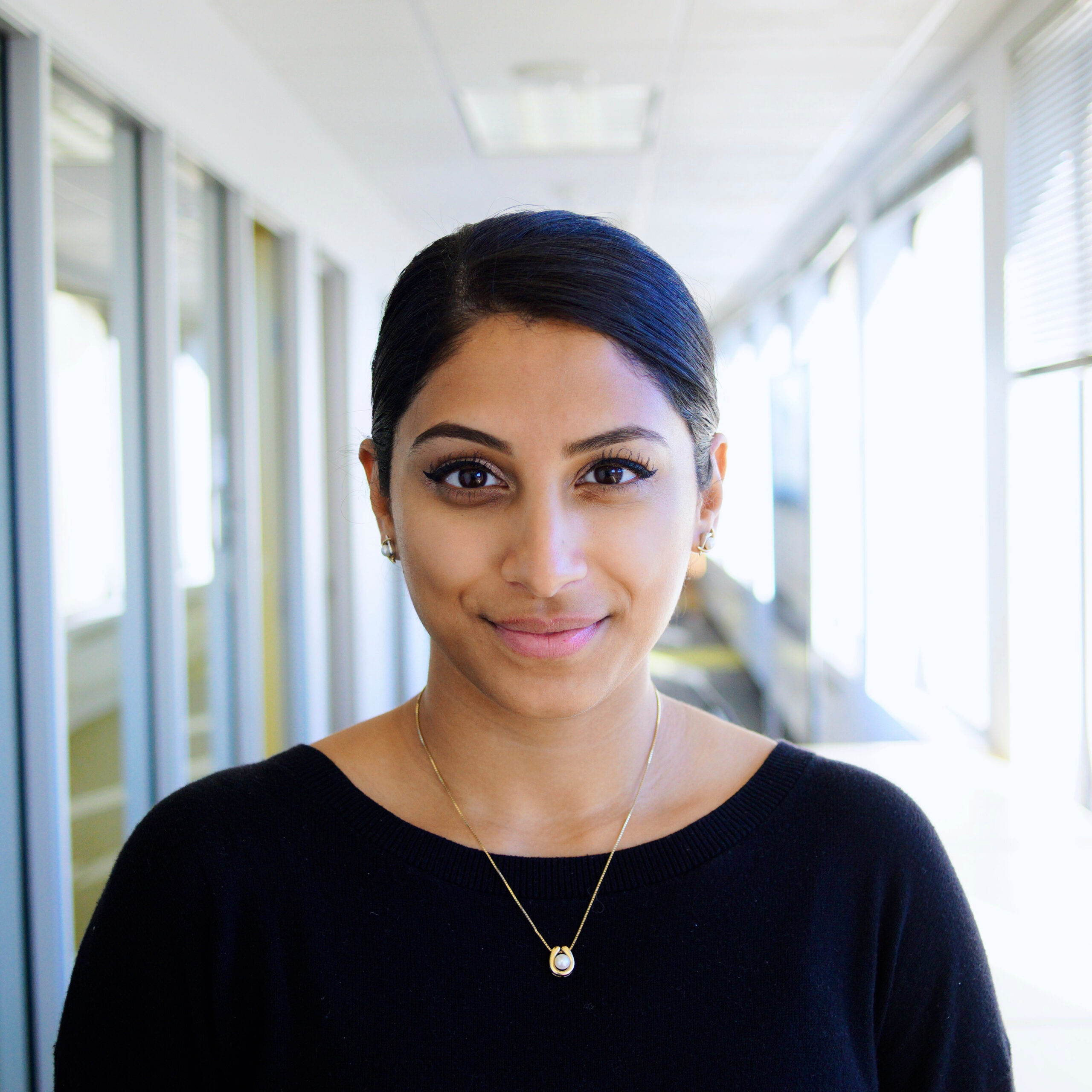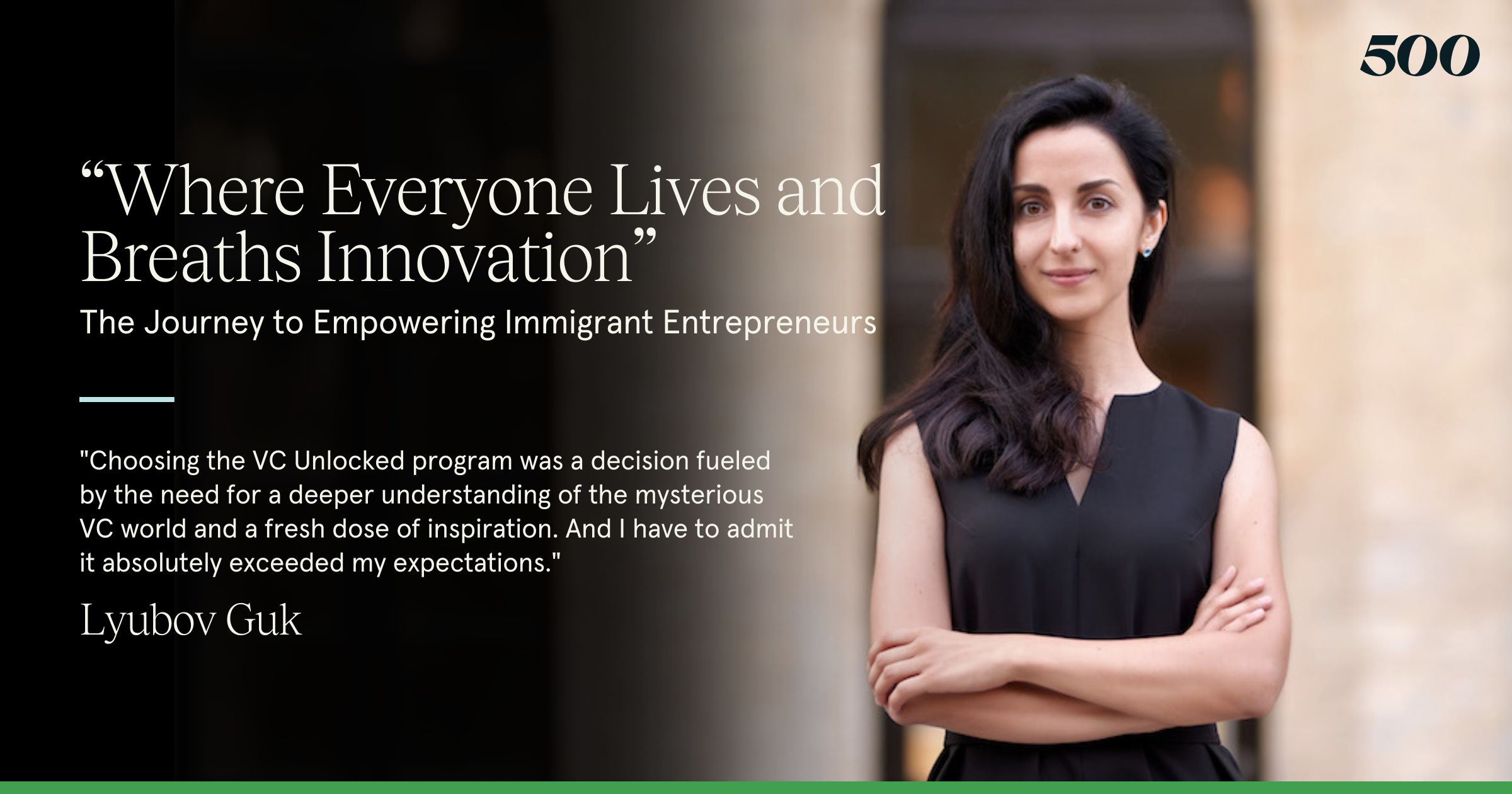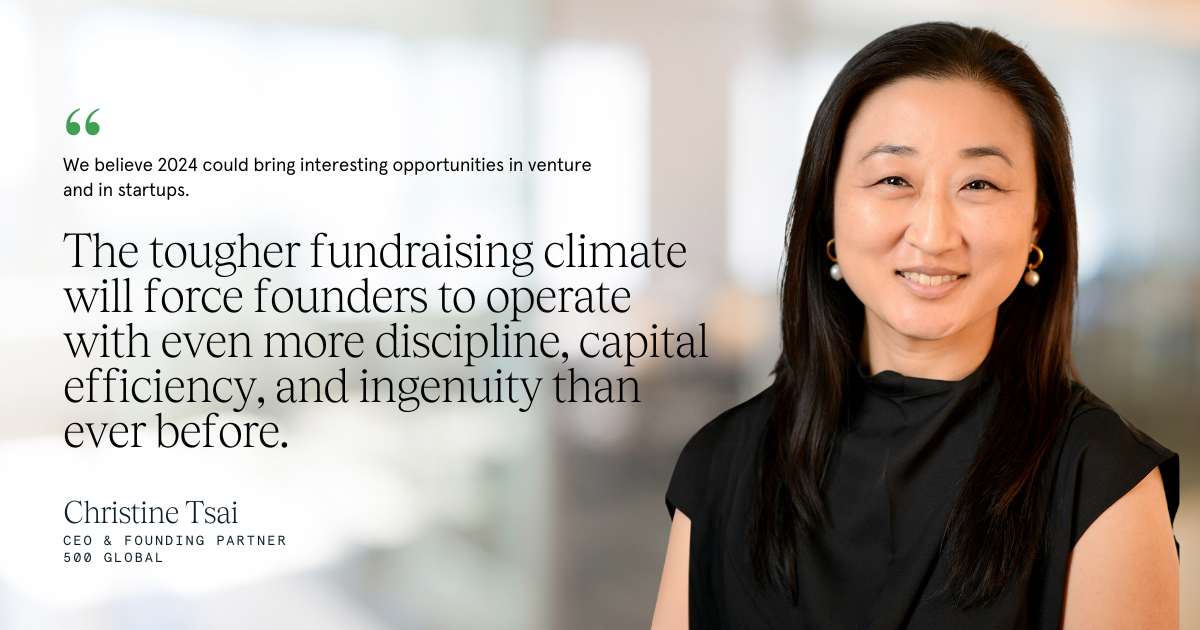Tanya Soman is a native New Yorker and the youngest female to make Venture Partner at 500 Startups. She started working hands-on with companies in 2014 by coaching them through the Seed Accelerator Program and now invests in consumer companies, including a specialty track within the program that focuses on the retail, beauty, and fashion verticals. Tanya is passionate about bridging the gap between international founders and Silicon Valley, which is why she speaks at events globally on fundraising from The Valley, nailing your company pitch, fundraising strategy and recruits around the world looking for the best deals. Tanya graduated in three years with a BS in business management from Babson College, a school specializing entirely in entrepreneurship. She enjoys karaoke, theater, and hiking her way through the San Francisco Bay Area.
How did you get into VC?
This is one of the most popular questions I get asked. Prior to joining VC, I was on the startup side. My startup experience included operational marketing roles at a couple of AdTech startups. Even then, I wasn’t sure if I wanted to be in marketing, but I knew I wanted to work at a fast-paced company that was at the forefront of innovation – a startup. After being in the NYC startup scene for a couple of years, I felt that I had truly experienced Silicon Alley. I wanted to be in the heart of it, so I bought a one-way plane ticket, lined up some interviews, and moved to California.
A friend of mine from Babson was an EIR at 500 at the time. While I deliberated offers from other startups, he sold me on joining 500, even if just for one batch. 500 was only about 25 people then and I wasn’t sure if I wanted to do venture. The pitch was that I would meet 30 new companies in the Valley, essentially have four months of due diligence, and potentially work with one of them after Demo Day. Fair enough! I was sold. After my first batch, I realized I loved being on the investment side and decided to stay.
What’s your role at the firm?
As a Venture Partner and on the investment team, I work with consumer companies that go through the Seed Accelerator. Outside of consumer, I look at all companies coming through our pipeline in the retail, beauty, and fashion verticals. These are billion dollar verticals that most investors don’t understand. The reality is that most VCs are still male, and it’s hard for them to see the value in a solution for a problem they don’t personally experience. What all VCs do see is ROI, which is why we invest in this space. My experience as a woman and a consumer uniquely positions me to evaluate these deals properly.
Throughout the year, I interview companies and track founders. If they receive an offer after a formal group interview, I continue to work with them during the program. I help companies with everything from fundraising strategy to investor meetings, one-liners, storytelling, pitch coaching, delivery, decks, etc. The day-to-day work changes depending on the startup I am working with.
After 10+ batches, this helps keep it interesting. In the past two years, I’ve participated in 50+ events as a keynote, speaker, panelist, or mentor. This has really helped me grow my investor and founder network globally. Some of the best companies come through referrals. Since our investments are early in seed stage companies, I also act as a navigator when it comes to helping companies target relevant investors for their vertical, stage, space, etc.
How does 500 operate differently than other VC firms? Can you talk about your responsibilities as a venture partner?
At most funds, you have Associates who increase the top of the funnel, Principals who are the first line of defense for Partners, and Partners who are the decision makers. It’s a little bit different at 500. Because each Venture Partner or EIR has a different speciality, the role is vertically integrated.
When I recruit a company, I am typically their touchpoint during their application process, interview, point of contact (POC) during the batch, POC for post program support and during any future financing rounds. Once companies graduate from the program, I am in contact with founders about once a quarter and more frequently during a financing round.
What advice would you give to a person who wants to get into VC?
Hustle. I said yes to every opportunity that brought me one step closer to my goal. Out of college I started as an intern at an AdTech startup and quickly proved my value which landed me a full time offer. They say you “wear many hats” at a startup, but what they don’t tell you is that you wear as many hats as you choose to. Being a self-starter is important, don’t be lazy. At 500, I started as an Associate and did the same thing. Take on projects that you can take credit for and provide value.
VC firms care about two things: access to deal flow and picking. Expand your network of founders and investors. The more people you know, the better quality your deal flow will be.
What if you’re not an investor yet? Start by connecting people, that’s your value add. Always make sure to give before you take in any relationship and people will remember you for it. These days it seems like everyone has a startup, developing a good eye to assess deals from a pool of thousands is crucial. Not every startup is a venture backable deal and some deals are better returns depending on the size of the fund. Be smart about your intros, guard your network, and learn to evaluate deals from a VC perspective.
How do you know which founders to invest in?
Startups spend the early days of their company finding Product-Market Fit. Founders and Investors need to find the right Founder-Investor fit. The objectives are different for each party involved.
Founders should look for an investor that is going to provide value beyond writing them a check. You want to work with investors who are going to be there for you when things aren’t going well and can leverage their network to connect you to the right talent, mentor, hire, etc. You can quickly learn about your investor by talking to founders in their portfolio. You will usually get an honest answer from the portfolio company and make the decision to work with them or not. Word travels quickly so a bad reputation is not kept a secret for very long.
Investors look for a strong founding team and a big market. Most VCs will assess a company by calculating possible outcomes of this investment and what the potential ROI can be. Not all business are VC-backable businesses so it’s important to determine if your business is a fit for their thesis. Investors should also believe that your team is the right team to build a company to solve this problem. A lot of this revolves around relationship building. The longer your relationship with a VC, the easier it is for them to make a decision.
At 500, I look for a combination of these things. We work with companies that go through our Accelerator for four months so it’s key that we invest in high quality people. My favorite founders are hustlers, respectful, and coachable. We help these companies grow as quickly as possible in just four months. It’s important that the teams are receptive to feedback and more importantly, are able to iterate quickly. Most early stage companies end up pivoting after they have pitched you. The only variable that will be part of the next stage is the founding team. I want to see that this founder is committed to building a business and not looking for a quick 2-5x exit. Though this may be fruitful for the founder, it doesn’t help investors economically. I want to see founders who are passionate because those founders don’t give up when the going gets tough.
If this sounds like you, apply to our upcoming Batch 24! Applications are now open at 500.co. We’re looking for companies that are ready to scale and badass founders.




